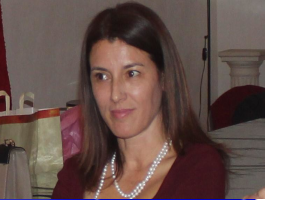Education, being one of the fundamental human rights as an absolute priority and also represents the foundation on which to achieve peace and orientate towards sustainable development.

Although Education for sustainable development, must start at school it must certainly not be contained within the walls of the classroom. The primary objective of the school is to optimize accessibility to quality training at all levels and in all social spheres, in order to implement actions aimed at achieving the sustainable development goals expected for 2030."Speaking of education for sustainable development means talking about an education capable of transforming people and society, to help individuals make decisions and act for environmental integrity and for a more righteous society", as said in the confidential web page to life-long learning. The United Nations document "Education for Sustainable Development Goals: Learning Objectives" is an action programme for citizens that aims to guide humanity towards a sustainable purpose whose aim is to ensure a sustainable, peaceful and prosperous life on earth and equality, directing the whole world towards a perspective of global transformation.
Therefore, education for sustainable development now becomes a crucial objective for the present and for the future of our planet. The environmental threat, connected to the preservation of our planet's resources, represents a challenge to face for future generations. We live in an era that forces the whole world towards completely different choices from those made previously, aimed for a modern model of economy that safeguards the environment, directed to a community that knows how to create prosperity and well-being through the re-use of the waste it produces. In order for this to happen, a profound change must be made that involves institutions, companies and above all individual citizens. This new awareness must start from schools and students, first and foremost from the youngest that we could call "environmental natives" a generation that, in daily conduct, operates in respect of the environment in which it lives.
The intent of the institutions, among which the school assumes a primordial place, is to create the conditions for these activities to be developed, strengthened, made systematic, they should represent the bases for a new convention among the citizens, handed down from generation to generation, for the development and progress of the planet. Education for sustainability, therefore, becomes a project in which the skills necessary to counter existing models are promoted, to perfect them and to implement new ones.Forming citizens, both adults and young people, to sustainability means triggering mechanisms of collective change in attitudes and lifestyles. A new vision of the environment based primarily on the sphere of values and subsequently on the cognitive sphere. Instructing education and training are the foundations on which the 2030 Agenda is set: the realization of the 4th goal "Providing a quality education that is fair, inclusive and learning opportunities for all" this is the first step ti accomplish the aspirations of the Agenda itself.Muir, Indire and Asvis (Italian Alliance for Sustainable Development) have promoted an initiative aimed at reaching the Agenda 2030 target by introducing the School 2030 project which offers teachers a series of contents, resources and self-training materials for an education inspired by the values and the conception of the Agenda itself.
The “Scuola2030” portal contributes to the achievement of target 4.7 which states: "By 2030, it will be ensured that all students acquire the knowledge and skills necessary to promote sustainable development through education for sustainable development, sustainable lifestyle, human rights, gender equality, the promotion of a culture of peace and non-violence, global citizenship and the enhancement of cultural diversity and the contribution of culture to sustainable development".The “Scuola2030” project stems from the protocol of understanding n. 3397 between MIUR-ASVIS, signed in December 2016, aimed at "promoting the spread of the culture of sustainability" in schools in order to make them become messengers of this solicitation and being in direct contact with the territory, they work for the realization of the objectives of development by 2030.In conclusion, the 2030 Agenda with its 17 Sustainable Development Goals (SDGs) shows an understandable opinion on the unstainabilityof the modern model of progress both in the environmental sphere and in the socio-economic sphere. Thus the concept according to which sustainability is exclusively an environmental issue is irrevocably overcome and integrated vision of the different extensions of progress is strengthened.
Luigia Santoro, laureata in Lingue e Letterature Straniere presso l’Università degli Studi di Bari, abilitata per l'insegnamento della Lingua e Cultura Francese nella Scuola Secondaria di I e II grado e specializzata per il sostegno. Attualmente, docente di Lingua Francese presso la Scuola Secondaria di I grado. Ha conseguito diversi titoli post-laurea. Formatrice ed esaminatrice in corsi preparatori per il concorso docenti, con insegnamento di “Didattica Inclusiva” e “Sicurezza e Privacy nella scuola”. Tra le sue numerose pubblicazioni: “Un Atelier du CIR, le théâtre au service des demandeurs d'asile et des victimes de torture” (Stamen, 2017); “Identità rivelate. Stereotipi, culture e pratiche del velo femminile tra oriente e occidente” (Stamen, 2017); I fonemi marcati dell’italiano L2 nei migranti africani (Ed. Circolo Virtuoso, 2017); Scuola e Sicurezza. Compendio per operatori scolastici in materia di sicurezza (Stamen, 2017); Il Dirigente Inclusivo. Profili, funzioni e responsabilità del DS come leader educativo (Stamen, 2018).



